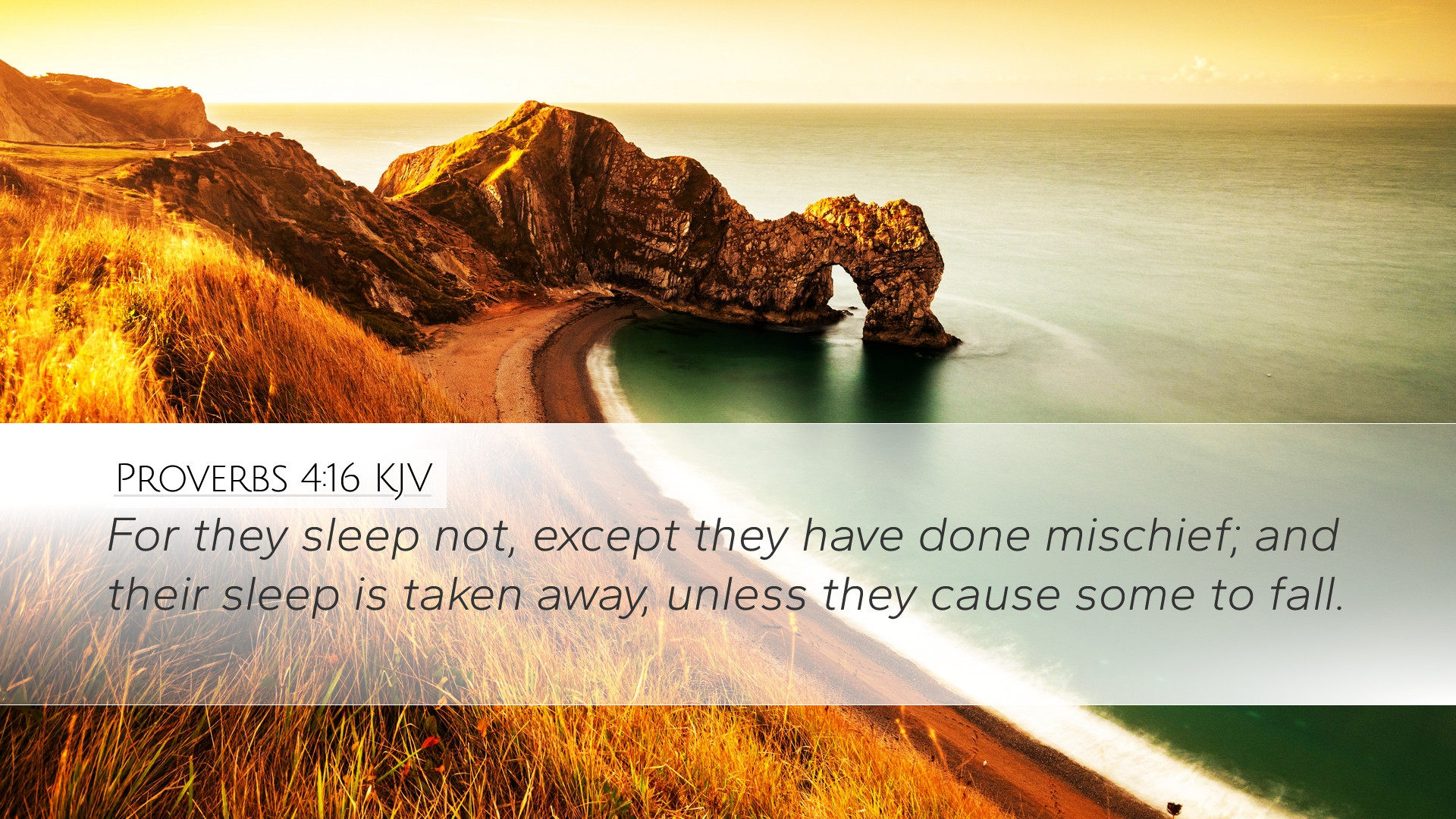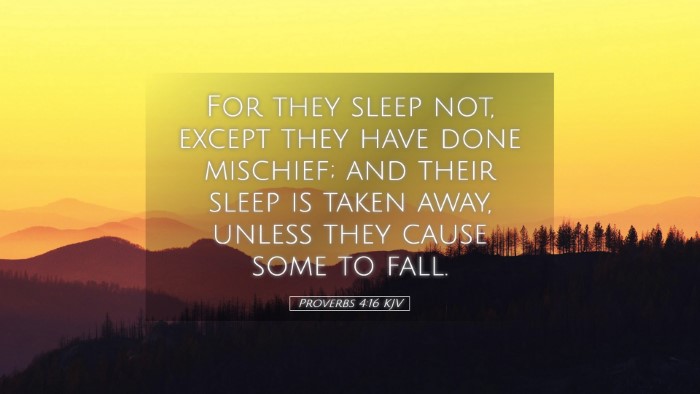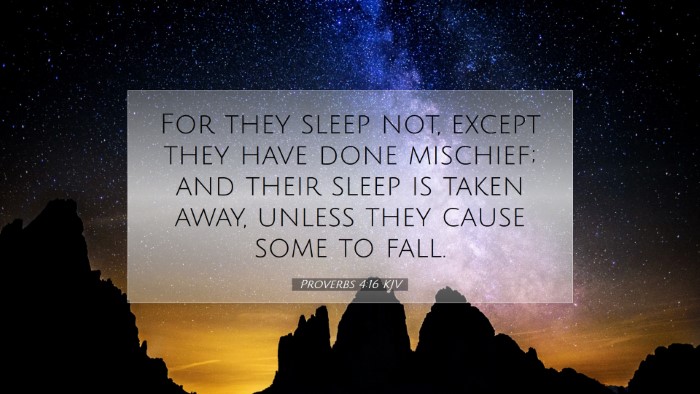Commentary on Proverbs 4:16
Proverbs 4:16 states, "For they sleep not, except they have done mischief; and their sleep is taken away, unless they cause some to fall." This verse speaks to the nature of the wicked and provides insight into the moral and spiritual condition of individuals who turn away from righteousness. Below, we explore various public domain commentaries to bring forth deeper understanding and reflection on this passage.
1. Understanding the Wicked
Matthew Henry notes that this verse illustrates the relentless nature of wickedness. He explains that the evil doer has no rest nor peace unless they are engaged in their malice. This condition reveals a profound truth about the depravity of human nature when it is allowed to stray from the path of virtue.
Henry emphasizes that the phrase "they sleep not, except they have done mischief" indicates the idea that for the wicked, doing harm is an essential part of their existence. Their joy derives from the suffering of others, which reveals the terminal depravity of their hearts.
2. The Nature of Sleep and Rest
Albert Barnes provides an insightful perspective on the metaphor of sleep. He states that in biblical literature, sleep often symbolizes a state of peace and security. Conversely, for those engaged in evil, sleep becomes a torment. Barnes maintains that the loss of sleep signifies the internal unrest that haunts the wicked and illustrates the consequences of a life lived in sin.
- The wicked cannot find true rest.
- Their sleep is troubled and filled with anxiety over their wrongdoings.
- This torment is contrasted with the peace that comes to those who follow the path of righteousness.
3. The Impulse to Cause Others to Fall
Adam Clarke elaborates on the second part of the verse regarding those who cause others to fall. He interprets this as an indictment against the wicked's desire to lead others into sin as a means of justifying their own actions. Clarke points out that the excitement in leading others astray serves as a twisted source of satisfaction for those who have strayed from God’s commandments.
This highlights a critical aspect of human nature: the propensity to share in corruption with others rather than accepting the loneliness of their depraved condition. Clarke warns that this tendency perpetuates evil within communities and families.
4. The Psychological Realm of Sin
In a broader psychological context, the teachings of these commentators encapsulate how the wicked engage in self-deception, believing their actions will give them lasting satisfaction. Matthew Henry suggests that the pursuit of evil culminates in a cycle of moral decay, emphasizing that the true peace of heart can only be found in fellowship with God.
Thus, when the wicked indulge their insatiable desires, they simultaneously bring upon themselves a restless existence characterized by turmoil and strife.
5. Application for Believers
This verse provides a strong warning and emits a call to vigilance for believers. It compels them to examine their own actions and their impact on others. The reflections from Barnes suggest that Christians should find their rest in Christ, who provides true peace and healing, whereas the wicked shall seek continuously and tragically elude peace.
- Believers are urged to cultivate lives marked by righteousness.
- They are called to renounce malice and embrace the teachings of Christ.
- To fall into sin is to lose sight of the bright light of salvation, which should be a source of great concern for the faithful.
6. Conclusion
In summary, Proverbs 4:16 serves as a poignant reminder of the consequences of a life entrenched in wickedness. Matthew Henry, Albert Barnes, and Adam Clarke collectively provide foundational insights into the disturbingly restless existence of the wicked, serving as a powerful warning to all readers. This verse encourages reflection on the paths we choose and underscores the necessity of pursuing righteousness for one’s soul at rest.


